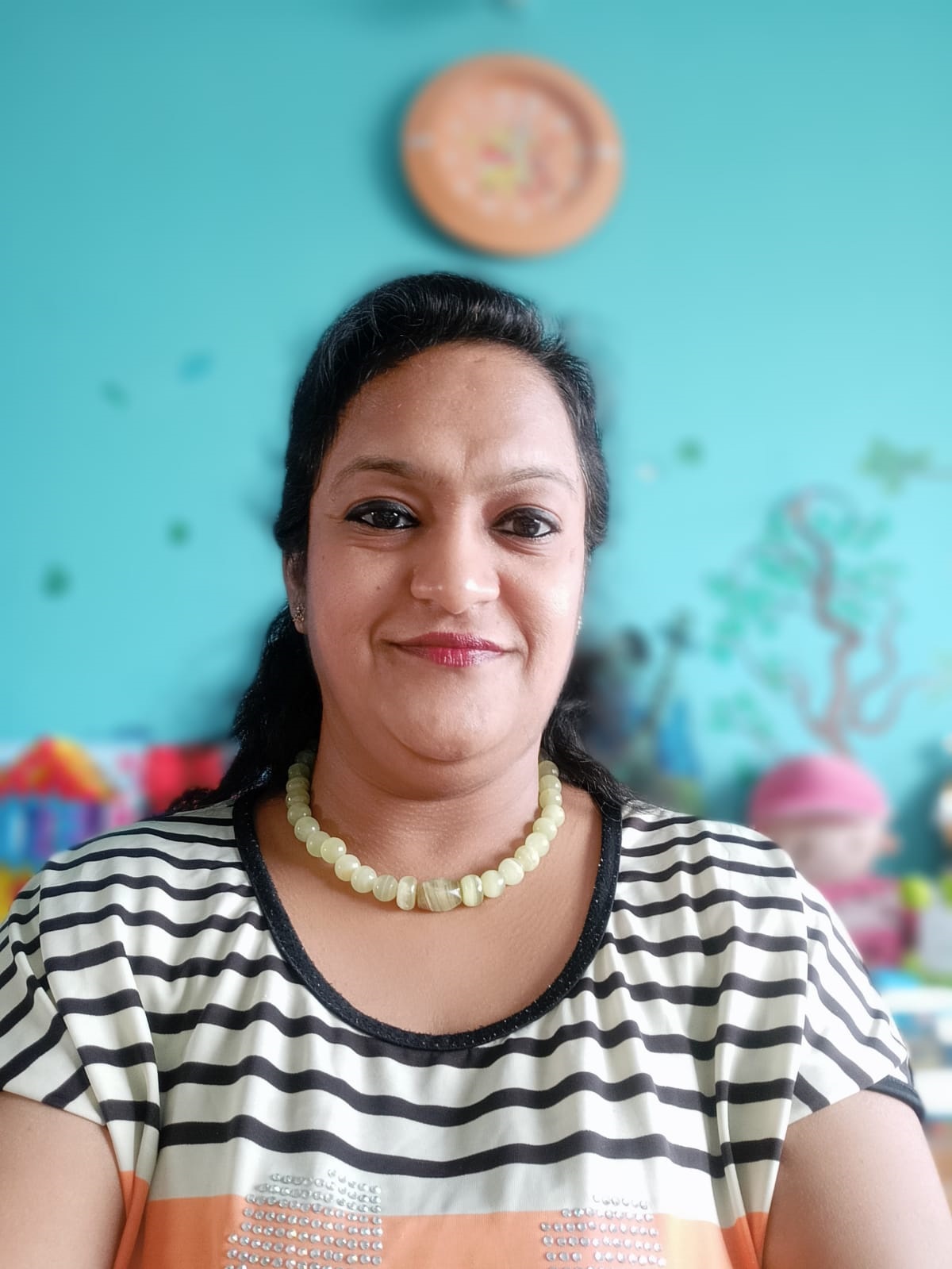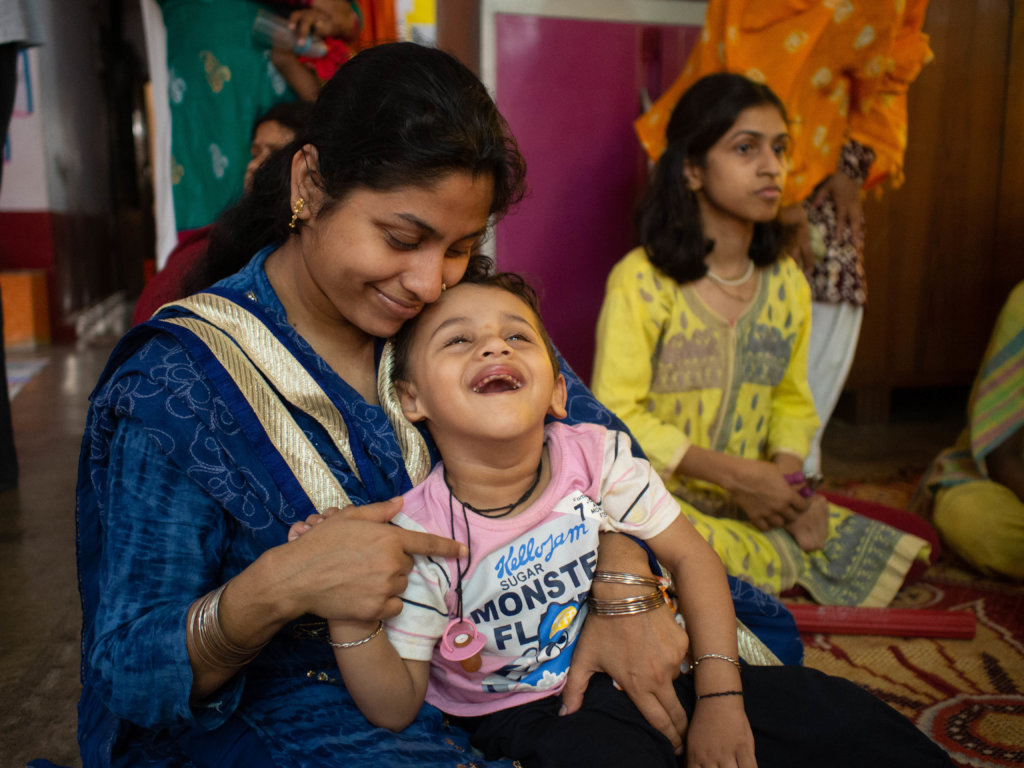With officialdom and society stacked against children with disabilities, parenting children with special needs requires and demands steely resolve, determination, patience, time, and often physical effort writes Cynthia John & Mini P.

On May 31, national roller skating champion Advaith Ramesh (15), who is diagnosed with autism spectrum disorder, was denied permission to board a Sri Lanka Airlines flight at Kempegowda International Airport, Bengaluru. According to the airline’s staff, the 15-year-old athlete was a safety threat to pilots and passengers.
Advaith’s parents, who had meticulously planned a family vacation in the Maldives, were outraged by the suggestion that their son posed a danger to the flight passengers. After several hours of discussion and heated arguments during which mom Smrithy Rajesh produced Advaith’s unique disability ID card issued by the Government of India and previous travel history of flights to Dubai, Advaith was allowed to board the flight.
This incident of official and public apathy, indifference and hostility towards Advaith resonates with hundreds of parents of children with special needs (CWSN) across the country. Every day, parents of CWSN are confronted with accessibility, inclusivity and acceptability challenges in schools, public transport and public spaces and also from society.
According to a 2019 Unesco report, India hosts 7.8 million children with disability, including physical and mental disabilities. Of them, 75 percent are not enrolled in any education institution. Moreover, the report says that 24 percent of CWSN are less likely to receive early stimulation and response care; 42 percent unlikely to have foundational reading and numeracy skills; 51 percent experience unhappiness; 41 percent likely to have experienced discrimination; and 32 percent severe corporal punishment.
With officialdom and society stacked against children with disabilities, parenting special children requires and demands steely resolve, determination, patience, time, and often physical effort. Parents of CWSN experience a roller coaster of emotions and experiences, from denial, realisation, acceptance, guilt, self-pity to sheer physical fatigue and stress. A 2009 study published in the Journal of Autism & Developmental Disorders found that mothers of adolescents and adults with autism had levels of stress hormones comparable to soldiers in armed combat.
“Despite knowing that it’s not easy to raise a child with special needs, we chose to adopt one. She had a heart problem as well as other development issues. Dealing with people around us and answering their questions was tough. Within a year of adoption, we had to take her through surgery. It was a stressful period. We know that the future may also be difficult but we believe that with love and care we can enable her to realise her true potential,” says Dr. George Cherian, a Bangalore-based ophthalmologist, who has one biological child and two adopted children including a CWSN.
When the authors of this narrative interviewed a handful of parents with CWSN, most of them revealed they suffered exhaustion and that their reserves of time and resources for self-care are more depleted than of parents of ‘normal’ children. Yet their need for refuelling is also greater. “To be able to run the marathon of caring for a child with special needs, it is essential for parents to practice self-care and accord top-priority to their own physical health and mental well-being,” adds Dr. Cherian.
In the pages following, we present advice from a parenting advisor for children with disabilities and child counsellor on ways and means parents of CWSN can practice self-care, as well as follow practical guidelines to nurture children with special needs, especially ADHD (attention-deficit/hyperactivity disorder).
 Strategies for self-care and support
Strategies for self-care and support
Ritu Jain, founder of Solicitude Parenting, a Bengaluru-based parenting advisory for children with autism, ADHD and developmental delays, believes that parents of CWSN have a special duty to equip themselves with the knowledge and skills to provide support and care to CWSN. “Initially it’s difficult for most parents to accept that their child has a disability. Many experience depression and retreat into denial. But acknowledging the reality and inviting professional help and intervention in early childhood is crucial to addressing children’s disabilities. With the whole-hearted support of parents, early intervention, education and therapy, CWSN can be empowered to become independent and successful adults,” says Jain.
Some guidelines that Jain offers to parents of special needs children are:
Join support groups. Seek out other families with special needs children — online or offline — to share and learn from their experiences. There are many online/offline support groups for parents of CWSN. For example, the Special Child Assistance Network (SCAN), Chennai, provides parents with valuable information including a directory of doctors/therapists and special needs schools. Action for Autism is a Delhi-based NGO which works for the empowerment of children with autism.
Practice self-care. However difficult, take time out for yourself from the daily schedule. Take short breaks and engage in enjoyable activities such as listening to music, reading, meditation, yoga, outdoor walks, etc. This will relax and rejuvenate your body and mind.
Educate yourself about your child’s disability. Research and learn about your child’s disability from online/offline resources. This knowledge will empower you to make informed decisions and provide intervention support when required.
Set realistic expectations. Accept that you can’t do everything perfectly, and that it’s okay to ask for help. Focus on progress rather than perfection and celebrate small achievements.
Communicate your frustrations and anxiety. Don’t bottle up your emotions. Share your emotions of anxiety, helplessness, guilt, etc with a trusted friend, family member, or therapist. This process will be cathartic and prepare you to rise to challenges.
Eat healthy & exercise regularly. A healthy, balanced, nutritious diet, adequate sleep and regular exercise, ensure physical well-being and positively impact mental health. Take out at least half an hour every day for exercise to reduce stress and increase energy levels.
Establish a daily routine. Organise and structure your daily activities, and establish a routine. This reduces stress and provides a sense of stability and predictability to you and your child.
Don’t neglect family relationships. Usually, parents of CWSN tend to isolate themselves because of societal pressures. Communicate with your extended family and friends, educate them about your child’s disability and lean on them for support.
Practice mindfulness. Mindfulness techniques, such as meditation and deep breathing exercises, lower stress and enable you to cope with problems.
Seek professional help. If you are struggling with melancholia, anxiety, hopelessness, and/or depression, consult a mental health professional. Therapy/counseling will provide valuable support and coping strategies. Seeking support shows your commitment to providing the best care possible for your child with special needs.
 Practical strategies for parenting children with special needs
Practical strategies for parenting children with special needs
Rajat Soni, a Delhi-based child counsellor and author of Unjudge Your Teenager (2020), who has advised several CWSN families, offers practical, effective strategies to provide care and learning support to children with disabilities, specifically children diagnosed with ADHD.
Visual reminders. Special children tend to recall better when presented with visual reminders. Therefore, write down instructions and daily tasks on a white board/or chart paper. Also an analog rather than a digital clock will help them keep track of time as they can see the arms of the clock.
Energy zones. CWSN tend to have certain periods during the day when their energy levels are high. Observe your child carefully and complete priority work during these high energy time zones. For instance, children with ADHD have laser sharp focus on whatever they put their mind to, so in the high energy time zone, get them to complete important tasks.
School/homework solutions. Some special children focus better when they have a sense of ‘connectedness’ with other people. So, avoid isolating them to complete school work. One of my patients diagnosed with ADHD could complete his homework only in the dining room amidst family chatter and commotion. Also, children with ADHD enjoy variety, so encourage them to complete homework in different locations at home.
Also offer support in completing homework and check when it’s done. However, there’s no need to be fussy about accuracy, just aim for completion. This will motivate them to finish homework on time.
Be clear and specific in your communication. Direct, concise, and straightforward communication always helps. For example, instead of saying “Switch off the TV and do something”, say “Switch off the TV, go to your room and arrange the clothes in your wardrobe.” Also avoid using slang, nuance, or sarcasm. Children with disabilities find such communication disturbing, complex and difficult to understand.
Demonstrate positivity and patience. Teenage children with special needs are likely to suffer low self-esteem because of the negative messaging they’ve absorbed from society about themselves over the years. They may have been told, directly or indirectly, that they “aren’t normal” — socially, academically, and physically. With such negative messaging, it’s difficult for them to develop self-worth and confidence. Provide support and reassure them of their capabilities while also narrating examples of high achievers/role models who have succeeded despite disability.
Children with disabilities Definition & Types
 The Convention on the Rights of Persons with Disabilities (CRPD) charter was adopted by the United Nations General Assembly on December 13, 2006, and signed in March the following year. As on June 2023, it has 164 signatory countries including India. The charter provides a powerful new impetus to promote the human rights of children with disabilities.
The Convention on the Rights of Persons with Disabilities (CRPD) charter was adopted by the United Nations General Assembly on December 13, 2006, and signed in March the following year. As on June 2023, it has 164 signatory countries including India. The charter provides a powerful new impetus to promote the human rights of children with disabilities.
According to the CRPD charter, children with disabilities “include those who have long-term physical, mental, intellectual or sensory impairments which in interaction with various barriers may hinder their full and effective participation in society on an equal basis”. Children with disability are a highly diversified group. They include children born with a genetic condition that affects their physical, mental or social development; who sustained a serious injury, nutritional deficiency or infection that resulted in long-term functional consequences; or children exposed to environmental toxins that resulted in developmental delays or learning disabilities. Children with disability also include those who developed anxiety or depression as a result of stressful events.
Broadly, disabilities could include the following types:
Physical. Allergies and asthma, juvenile arthritis, muscular dystrophy, epilepsy, physical disabilities.
Developmental. Down syndrome, autism, dyslexia, dyscalculia, dysgraphia, dyspraxia, aphasia or dysphasia, auditory/visual processing disorder.
Behavioural/emotional. Obsessive compulsive disorder, dissociation, post-traumatic stress disorder, anxiety, depression, attention deficit (hyperactivity) disorder, bipolar disorder.
Sensory-impairment. Blindness or visually impaired, deaf or limited hearing.
The eight guiding principles of CRPD mandate:
- Respect for inherent dignity, individual autonomy including the freedom to make one’s own choices, and independence of persons
- Non-discrimination
- Full and effective participation and inclusion in society
- Respect for difference and acceptance of persons with disabilities as part of human diversity and humanity
- Equality of opportunity
- Accessibility
- Equality between men and women
- Respect for evolving capacities of children with disabilities and respect for the right of children with disability to preserve their identities
Teaching inclusion to children
It’s important for parents to take the lead in educating ‘able’ children about the importance of creating inclusive school/social environments where CWSN are accepted and cherished. Here are some tips on teaching children the virtue of inclusion.
- As a parent, make the first move by introducing yourself to the parent of a child with special needs.
- Organise activities such as painting, colouring, puzzles, board games, etc — in which all children can participate.
- Encourage your child to invite special children home for play dates and birthday parties. If the special child is more comfortable in her home, you could send your child to visit and play there.
- Teach your child that it’s impolite to stare at challenged children. Teach them to smile instead.
- Educate your child that it’s normal for CWSN to be different. Children with disability can excel in many fields. But they require help, time or special equipment to excel.
- Educate your children that disability is not contagious.

























